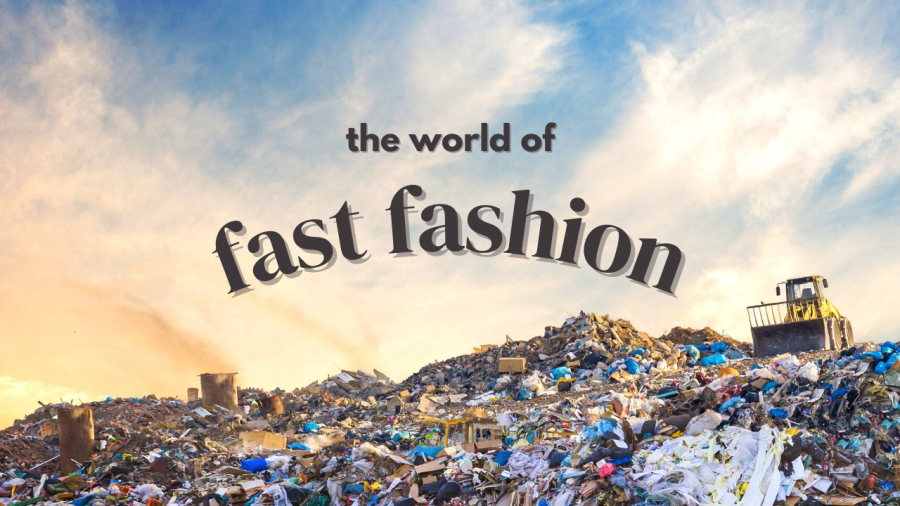The Treacherous World Of The Fast Fashion Industry
Supporting unsustainable brands destroys both the planet and your ethics
Fast fashion production and consumption only harm the Earth; from disposed clothing wasting away in landfills, to toxic substances polluting the air and oceans.
It’s fairly common to see celebrities, friends, and peers proudly sporting their trendy clothing that came with an unbelievably low price tag. The industry of fast fashion is expected to grow exponentially in coming years, becoming even more widely accepted and attainable. But while these brands provide cheap, stylish clothing and accessories, nothing comes without a price; and the price to pay for fast fashion consumption isn’t worth the outward benefits it presents.
What is fast fashion?
Fast fashion refers to the mass-production of poor-quality clothing that replicates the latest fashion trends. Products are sold at insanely low prices, making up for the insanely low quality.
Some recognizable fast fashion brands are Shein, Fashion Nova, H&M and Forever 21. Unsurprisingly, these are merely a handful out of many brands with harmful production practices.
How is it damaging our environment?
While being the second-highest user of water worldwide, the fast fashion industry is also responsible for producing 20% of water waste globally. This is mainly attributed to the process of textile dyeing, in which toxic chemicals enter and contaminate our water. Often times once the water is contaminated, it can’t be made safe again.
Synthetic materials are the leading cause of plastic microfibers polluting our oceans. In order to lower the selling price, fast fashion producers use low-quality materials- such as polyester- which contains plastic and releases more carbon into the environment than that of sustainable materials.
Additionally, the plastic in these synthetic materials is slow to degrade. Once it eventually does, a toxic substance is released that harms marine life and ecosystems. This toxicity also has the potential to end up in the human food chain.
Fast fashion further brings light to the issue of excessive clothing consumption. 62 million metric tons of apparel were consumed globally in 2019, and this number has only continued to increase over the years. Such consumption results in 57% of all discarded clothing ending up in landfills.
Discarded clothes are then incinerated after piling up in landfills. This process brings with it multiple public health and environmental dangers. Poisonous gases and toxic substances are emitted during incineration, which in turn attributes to air pollution.
What are the ethical issues surrounding fast fashion?
Fast fashion is notorious for its unethical business practices. Products are made overseas so that companies can avoid regulated high minimum wages. Workers are employed for long hours in unsafe conditions, producing clothing as quickly and inexpensively as possible to keep up with demand. In many cases, children are employed and basic human rights are violated in order to mass-produce clothing.
It’s also probable that workers are exposed to caustic chemicals and dyes, and may work under other dangerous circumstances where safety isn’t a primary concern.
What are some alternatives?
The obvious alternative is to research and purchase clothing from reputably sustainable brands. While it’s true that fast fashion brands are much more affordable, you get what you pay for− unethical and quick production. Make sure that the company you purchase from is ethically aligned with your beliefs before you buy.
Donating and thrifting clothes is another great alternative to supporting fast fashion. This way your old clothes aren’t clogging up landfills, and in turn, you purchase sustainable clothing for an affordable price. It’s a win-win!
Spreading the word about the dangers of fast fashion is the best jab back at the industry. Start a dialogue with those who religiously purchase clothes from these unsustainable brands. Change starts with the consumer; if there’s no demand for fast fashion, there’s no fast fashion.



avery | Feb 9, 2022 at 8:11 pm
hut 8 is a great local small business to shop at!! it’s a thrift store and you can sell your clothes to them and then shop for free!